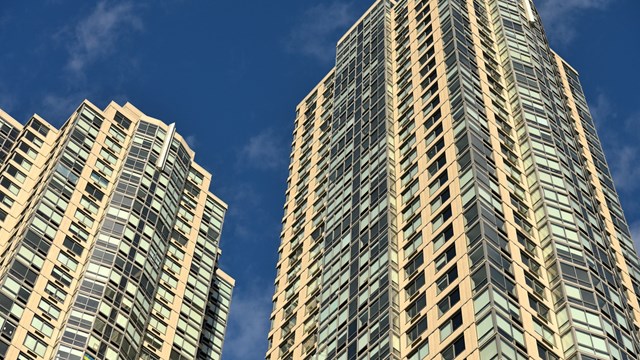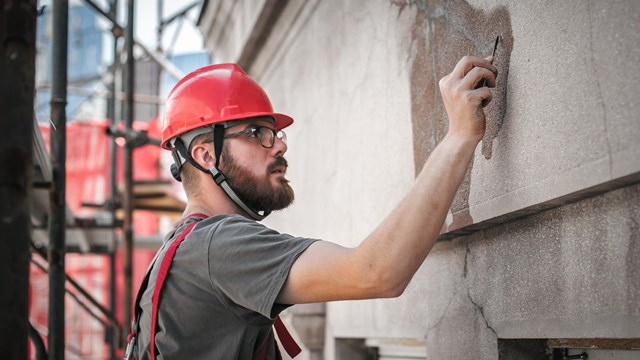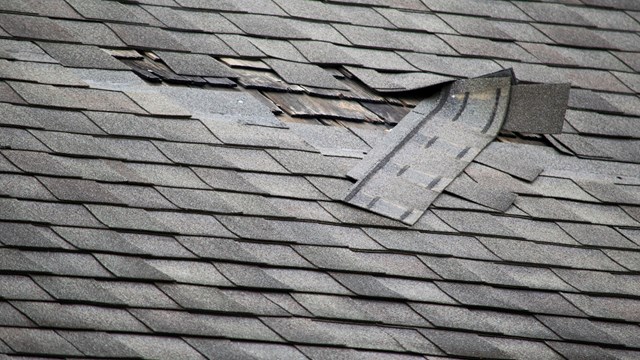Any time a brand-new building or development is proposed in any given New Jersey community, there will be objectors. Residents might voice concerns about urban sprawl or the impact on their neighborhood's character, or they might just be concerned about the nuisance of having the noise and pollution of a construction site next door.
Regardless of their reasons, residents who find themselves next door to a construction site will be faced with inconvenience. This article will illustrate some of these problems and offer advice on how residents, HOA boards and managers can minimize the concerns for themselves and their communities.
Common Resident Complaints
When construction starts, local residents will start slinging the complaints. Or, at the very least, they will voice opinions on what types of new development should be allowed in their neighborhoods.
"It doesn't matter what kind of development it is, there's always somebody who has some kind of objection to the extra traffic, extra noise or whatever," points out Ronald Perl, partner in charge of the Community Association Law Practice Group at Hill Wallack in Princeton. "There will always be objectors."
Initially, complaints might revolve around the noise, odors and dust that come from an active construction project. Nobody wants to live next to the chaos of construction.
But, ultimately, residents will be worried about the possible effects of the planned development on their residential environment. One common concern is that planned projects that replace wooded lots will affect existing storm water drainage.
"Many times these concerns are unfounded since a proper site design should address site drainage such that excessive run-off is avoided," says R. Russell Fernandes, vice president/principal of Becht Engineering BT, Inc., in Liberty Corner.
Other concerns might include questions like, will the new development increase traffic? Will my pleasant view be replaced with the loading dock of a Wal-Mart? Will there be noise from a retail establishment or a business that will ruin my peaceful residential environment?
Perl describes one case where his firm helped a community association fight a proposed drive-in fast food restaurant going in next door. The association didn't mind that the new development was a restaurant, but they hated the idea of the drive-in because of the noise aspect.
"They use those squawk boxes where the amplified voices are pretty loud," explains Perl, who has been working with community associations for just under 30 years. "And some of these fast food places are open late at night. After convincing the planning board that it would be too much of an intrusion on the neighboring residential development, we ended up having the drive-in eliminated from the plan."
Perl remembers another case in East Brunswick where a condo association was adjacent to a property being developed for a foundry that would use noisy cranes. They negotiated a time limit where the company couldn't work past a certain hour because the noise was intrusive to the neighboring residential community.
As far as serious construction-related problems, most developers are very responsible, Perl states. Even if a problem occurs, like erosion during excavation or water damage from an accidentally broken water line, developers will take proper measures to fix the problem.
"It's usually just a mistake somebody makes out in the field," he says. "If the developer is not taking proper precautions, municipal officials are very good at responding to complaints—so there definitely is recourse. City agencies are definitely the ally of condo associations, homeowners associations or other citizens when this development process is going on."
Fernandes says that serious problems don't happen too often anyway.
"We've all read about the occasional building collapse caused by a construction project on an adjacent property, but such occurrences are rare, fortunately," he says. "The vast majority of projects are completed uneventfully and ultimately result in a successful new building or complex."
Even if something catastrophic does occur, damages would normally be covered by a developer or contractor general liability policy.
Developers' Legal Responsibilities
Developers may have to notify residents of a community prior to starting a project, depending on the scope of the work anticipated and the ordinances in place in a particular jurisdiction.
In New Jersey, developers are obligated to notify all residents within 200 feet of the property being developed, Perl says. Public notice is required for all subdivisions.
Once notification is given, objections will arise and the developer will be forced into discussions with neighbors about not only construction but also the direction the development will take.
"New Jersey law requires that a public hearing be held and that the process be in the open," Perl adds. "The public has a right to hear all the testimony, to testify and to present witnesses."
"One of the most important issues to discuss is the scope of the project and to determine a realistic completion date," advises Zachary Levison, vice president of Delta Building Services in Rutherford. "There is nothing worse than being told that a project will mean one street closed for one month and then finding out halfway into the project that it will be two streets for two months."
Outside of enforcing the ordinances, city agencies probably won't get involved in mediation unless a specific complaint is lodged.
"Their purpose is to enforce the building codes in an effort to achieve a code compliant building," says Fernandes. "They typically do not get involved with issues dealing with neighboring properties."
He points out, however, that during the approval process, the municipality will invite public comment which will then be considered by the zoning and/or planning departments when they're granting their approvals of development.
"Often such comments result in the zoning officials requesting changes in design to address concerns," he adds. "These requests might include planting shrubs to absorb noise and preserve privacy between properties or changing grading to redirect storm water drainage away from adjacent lots."
Tree-lined berms can act as buffers to shield unattractive views, security lighting and unwanted noise from residential areas. Also, most municipal ordinances require commercial development to stay 100 feet away from residential areas.
"It's extremely important for city agencies to interact on a regular basis with associations and managers so that they do not feel excluded from the process," Levison points out. "Even if the city agencies don't need the association's approval on some issues, they should keep them in the loop and make them feel like they are part of the process. That way, when they do need their approval, there will be no resistance."
What Can be Done to Minimize Problems?
If development occurs next to your property, you can rest assured that most developers are responsible enough to take physical measures that will minimize dust, noise and other problems.
Measures such as periodic watering of dusty soils can help minimize dust, while black cloth fencing around construction sites is used to minimize soil run-off during rain and will also catch some of the dust resulting from wind blowing over disturbed soil.
Another way to keep dirt where it's supposed to be is by adding a gravel bed that construction vehicles have to drive over before entering public streets. The gravel acts as a huge welcome mat for the trucks to 'wipe their feet' and keeps streets clean.
Ordinances relating to noise specify the hours of the day construction can take place, typically between 7 a.m. and 6 p.m., says Fernandes.
"Scheduling is key here," Levison adds. "No early morning work, no weekend work, etc."
"Also, if workers are sensitive to the issue, they can make an effort to set up noisy equipment like power saws away from adjacent property owners," Fernandes says. However, he adds, "Even when all the rules and ordinances are properly followed, there will always be some noise from construction and some inconvenience to property owners."
Despite the best intentions of any developer, sometimes residents will need to complain about damages or loss related to a neighboring construction project. If this is necessary, the first step would be to speak with the person in charge at the construction site.
"Many contractors will go out of their way to repair damage caused by their workers and try to appease the adjacent owner," advises Fernandes. "If the person in charge of the site is not helpful, then the owner of the company should be contacted. If the damage is more significant or the contractor has refused to 'make good,' it may also be necessary for the property owner to contact his insurance carrier."
Residents can call code or inspecting officials about ordinance violations and they'll usually take care of it, says Perl. But if your property has sustained damages as a result of construction, inspecting officials can't get you compensation.
In that case, he suggests that a resident call their insurance company regarding a damage claim, or their attorney if it's a more serious claim.
What Boards and Managers Can Do
Good communication between boards and managers and their residents is key when it comes to dealing with construction next door, Fernandes points out.
"Homeowners need to be notified of the work that will be taking place," he says. "Depending on the project, it might be useful to have an idea of the construction schedule and when certain key events will be occurring so that necessary precautions can be taken, such as moving cars further away from the site so they don't get covered with dust, or simply knowing to keep windows closed."
Levison agrees that keeping in touch with residents is one of the smartest moves a board can take. He suggests keeping them informed through multiple meetings and pamphlets and by updating them frequently on their legal rights for all related issues.
An advantage of having your homeowners association behind you is they have the financial resources to hire experts like engineers or attorneys to evaluate the planned development and see if anything can be done to minimize development-related troubles.
"Boards and managers can interface with local officials, appear at planning board meetings, hire professionals and keep an open dialogue with the neighboring project developer to work things out," Perl concludes.
Domini Hedderman is a freelance writer and an aspiring novelist living in Erie, Pennsylvania.







Leave a Comment